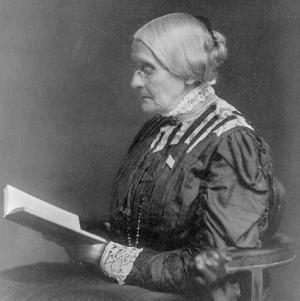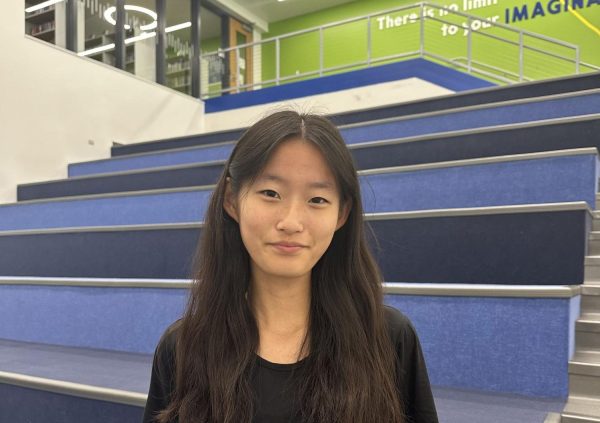Everyone is a part of history
Women’s history should not be overlooked

Photo by Used with the permission of National Women’s History Museum
Susan B. Anthony (1820-1906) was a women’s rights activist. Her role in the women’s suffrage movement paved the way for many of the rights women have today
Susan B. Anthony, Maya Angelou, Amelia Earhart.
These three women overcame the societal expectations set for them to do what they wanted to do, and they are not the only ones. Women’s History Month is currently happening in March, and it is important to recognize the women who have made a mark on history and contributed to where society is today, according to those Bear Facts spoke to about women’s history.
Women’s history month commemorates the vital contributions of women in both historical and modern society. Female icons have paved the way for gender equality, taken on significant roles, and changed the world, showing people that women have potential, said Laura Kustra, history teacher, even if “a focus on female history has been lacking.”
“Women have made contributions in areas that they are often not associated with: science, medicine, math, [and] governing. They’ve been [in those fields], it’s just that it doesn’t get emphasized,” Kustra said. “Highlighting some of those accomplishments with women throughout history is always a positive.”
One of these positives includes historical female figures acting as role models to show people, especially “young girls that [they] can change the world too,” Elise Tyson, freshman, said.
“[Women] can also become inventors or politicians with the right opportunities and hard work,” Tyson said. “So it’s good to remember role models. It’s important to recognize what they’ve done, and learn from it.”
Laura Stanton, English teacher, described her personal experience in understanding the role of the past.
“I thought about my grandmother and my mother and me and the progress that they have made so that I could have an education and have a voice. So that was inspiring to me and how I knew I wanted to minor in Women’s Studies,” Stanton said.
Not only does women’s history month recognize how powerful women are, understanding and recognizing women’s history, according to Kustra, might also help draw attention to misogynistic issues that currently exist in society, even if it does not resolve them completely.
“A lot of those social and cultural values [relating to gender] are always going to exist, but I think that the more we can try to encourage and celebrate underrepresented groups of people, like women, in history months, I think that that’s a step in the right direction,” Kustra said.
In fact, Tyson suggests that while acknowledgment for women’s achievements has been long overdue, society has opened up its perspective to long-overlooked groups.
“I think in general, society as a whole has shifted towards recognizing everyone who’s made an impact instead of just a certain race or gender,” Tyson said. “People have realized that it’s important to recognize and appreciate women’s achievements as well as men’s and to support women’s efforts to make an impact by honoring that they are capable.”
There are various approaches to show appreciation for the progress made by women in celebration of Women’s History Month. People can research the achievements of a certain woman, said Stanton, or talk to friends and family to bring awareness towards women’s history month, suggests Tyson.
For people who perhaps do not believe in the significance of women’s history, Kustra hopes that their opinions will change.
“Only associating accomplishments in the world with men is just not opening up your eyes to the richness of other genders,” Kustra said. “I think [it prevents] you from seeing the beauty of what happens when we all work together to accomplish goals and better society.”

As a senior, this is Grace’s third year on the Bear Facts staff, acting as Spotlight Editor and secretary. In her free time, she enjoys running (sometimes),...
